Division of Washington Estate Revealed in an Obscure Spotswood Letter

July 31, 1807 letter from Alexander Spotswood in regards to Ashby’s Bent.
In October of 2020, I acquired an old historic document. But it is not just any random document. It is a letter written on July 31, 1807 by former General Alexander Spotswood (not to be confused with his grandfather who was Governor Alexander Spotswood, a former Lieutenant Governor of the Colony of Virginia from 1710-1722). At some point, Spotswood was made a manager of the estate of George and Martha Washington after their deaths. You may be wondering how Spotswood was so closely and intimately involved with the Washington family, that will soon follow. But first, a little background on events preceding the letter.
Ashby’s Bent, now Ashby’s Gap, is land that is located in the counties of Loudon, Clarke, and Fauquier in Virginia. The land got its name from Thomas Ashby who gained lands along Goose Creek. At some point, George Carter, grandson of Robert “King” Carter of Corotoman, gained possession of said land. George Carter died about 1742 in England without having made a will. In 1744, an act was passed by the Virginia General Assembly that directed trustees to sell Carter’s vast land holdings which totaled about 20,000 acres in what was then Prince William, Fairfax, and Frederick counties.
After about twenty years, less than half of George Carter’s land had been sold, so new trustees were appointed; Robert Burwell, Fielding Lewis of Kenmore in Fredericksburg, and Colonel George Washington. On November 19, 1767, an ad was placed in Purdie and Dixon’s Virginia Gazette announcing the sale of George Carter’s lands in Fauquier County, the sale set to occur on November 25th. At this sale, George Washington ended up purchasing 2,682 acres of land at Ashby’s Bent. Washington, who kept a diary for many years, made an entry in his diary on March 10, 1769 that reads, “Went out to run out the bounds of the Land I bot. of Carters Estate but the Weathr. being very cold & windy was obligd to return.” Washington having been a surveyor for a number of years at this point in his life, was out and about attempting to survey his newly acquired lands.
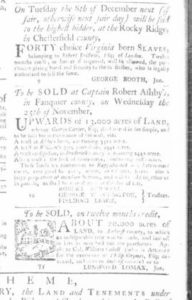
Purdie and Dixon’s Virginia Gazette, November 19, 1767.
Courtesy of John D. Rockefeller Library, Williamsburg, Virginia.
Washington would keep these lands until his death. In his last will and testament, Washington divides up his Mount Vernon estate, lots in Alexandria and remaining lands he owned. The Ashby’s Bent parcel of land may have been lands Washington left to his nephews and nieces, the children of his deceased sister Betty Lewis. In his will, Washington made the following bequests:
Fifth All the rest and residue of my Estate, real & personal not disposed of in manner aforesaid In whatsoever consisting wheresoever lying and when whensoever found a schedule of which, as far as is recollected, with a reasonable estimate of its value, is hereunto annexed I desire may be sold by my Executors at such times in such manner and on such credits (if an equal, valid, and satisfactory distribution of the specific property cannot be made without) as, in their judgment shall be most conducive to the interest of the parties concerned; and the monies arising therefrom to be divided into twenty three equal parts, and applied as follow…
…To Fielding Lewis, George Lewis, Robert Lewis, Howell Lewis, Betty Carter, sons and daughter of my deceased Sister Betty Lewis, I give & bequeath five other parts one to each of them.
It was a less common practice for a person to divide land such as Washington did. The method Washington used in his will is known as the preferential mode, in which multiple heirs were given certain lands. This would require the additional heirs to pay the value of the land to the primary heir(s).
Spotswood would have been responsible for settling the payments which would allow Colonel Fielding Lewis’ heirs to take ownership of the land left to them.
The letter specifically mentions land Spotswood purchased–Ashby’s Bent– from George Washington’s estate for the heirs of Colonel Fielding Lewis, Washington’s brother-in-law who had married his sister, Betty Washington. Colonel Fielding Lewis had passed prior to George Washington’s death, so the rights to the land passed to his heirs. The Spotswood letter shows a rare glimpse into Colonial law and society.
See below for a transcription of the letter:
July 31, 1807
Dr Sir
Bushrod has just informed me that you are now at home. Mr L Lewis will inform you what has passed between us. I can settle the claim of the extrs ___ for my purchase of part of Ashbys bent with Mr Robt Lewis & my son, who has just returned from Kentucky and who are properly authorized to act for the heirs of Mr Fielding Lewis decd to expedite the business I pray you to forward to Mr Robert Lewis my deed and the mortgage perhaps was you to give Mr Lewis & my son an order on one for the proportion Mr F Lewises heirs are entitled to it will forward the business which I am anxious to close for my ___ if the order comes Mr Lewis will go with me to Hicks & close the sale ___ to my bonds
[signed] A Spotswood
Now for the key players involved in the letter…
General Alexander Spotswood
Born October 16, 1746 in Spotsylvania County, Virginia, Alexander Spotswood was the son of Colonel John Spotswood and Mary Dandridge, and a grandson of Lieutenant Governor Alexander Spotswood. He married Elizabeth Washington, a niece of George Washington, making him a nephew-in-law of Washington’s.
Alex fought in the American Revolution having gained a commission as a major in the 2nd Virginia Regiment on February 13, 1776. He was promoted to lieutenant colonel of the regiment on April 20, 1776 and again to colonel on February 21, 1777. Before going off to fight in what was called “The Glorious Cause”, he and his brother, Captain John Spotswood, had made a pact that if either of the two of them should be killed in battle, then the other brother would resign his commission and go back home to look after the other brothers family.
On October 4, 1777, Alexander’s brother, John, was severely wounded at the Battle of Germantown. He was believed to have died, so as the brothers promised each other, Alexander resigned his commission on October 9, 1777 to go back home to take care of his brother’s family. He then later learned that his brother was alive and a prisoner. On July 16, 1778, the former Colonel Spotswood wrote a letter to General Washington to try to get his commission back and reenter the service. As others had been promoted and the command structure changed, Washington regretfully had to decline the request. In March 1781, the Virginia General Assembly passed an act to assemble two units of Virginia militia to protect the state in response to British raids and attacks occurring in the state. Spotswood was appointed to command these units with the state militia rank of General.
After the war, he settled down in Spotsylvania County at his home called Nottingham. He died December 20, 1818.
Colonel Fielding Lewis
Fielding Lewis, son of John Lewis IV and Frances Fielding, was born July 7, 1725 at Warner Hall in Gloucester County, Virginia. He married Betty Washington, sister of George Washington. He was a merchant in Fredericksburg, Virginia and was commissioned Commissary General of Munitions during the Revolution with the rank of Colonel. He established an armory in Fredericksburg where arms and ammunition were made, and he poured a significant amount of his own money into the venture, a venture which he nor his family was never compensated for. He died in Fredericksburg December 7, 1781.
Robert Lewis
Robert Lewis was the son of Colonel Fielding Lewis and Betty Washington Lewis, and nephew of George Washington. He was born January 20, 1769. During Washington’s first term as President, Robert served as his secretary from 1789 until 1791, the year he married Judith Carter Browne. Robert served several terms as mayor of Fredericksburg and collected rents for his uncle on lands in Frederick County, where he also owned land. He died January 17, 1829.
L. Lewis
This is believed to be Lawrence Lewis, one of Fielding and Betty Washington Lewis’s sons, but it is not known with certainty.
Bushrod Washington
Bushrod Washington was a nephew of George Washington. In his will, the former president bequeathed most of Mount Vernon to his nephew. In the letter, Spotswood says “Bushrod had just informed me,” meaning the letter was likely written from Mount Vernon when he was visiting Bushrod.
References:
Duke, Jane Taylor. Kenmore and the Lewises. New York: Doubleday & Company, 1949.
“George Washington’s Last Will and Testament, July 9, 1799.” George Washington’s Mount Vernon. Accessed November 28, 2020. https://www.mountvernon.org/education/primary-sources-2/article/george-washingtons-last-will-and-testament-july-9-1799/.
Graham, Wayne, “For Generations: Wills, Inventories, and Wealth in Colonial Virginia” (2001). Dissertations, Theses, and Masters Projects. Paper 1539626329. https://dx.doi.org/doi:10.21220/s2-06td-pk29
Long, Todd Eberle. Voices of the Past: The Long and Brooks Family History. Fullerton, CA: Creative Continuum, 2013.
“To George Washington from Alexander Spotswood, 16 July 1778,” Founders Online, National Archives, https://founders.archives.gov/documents/Washington/03-16-02-0095. [Original source: The Papers of George Washington, Revolutionary War Series, vol. 16, 1 July–14 September 1778, ed. David R. Hoth. Charlottesville: University of Virginia Press, 2006, pp. 86–87.]
Twohig, Dorothy. George Washington’s Diaries: An Abridgment. Charlottesville and London: University of Virginia Press, 1999.
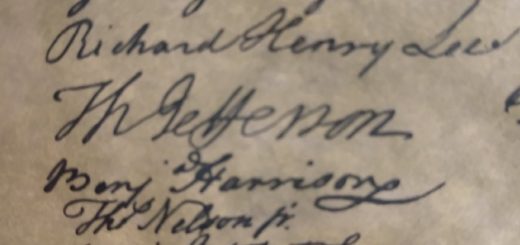
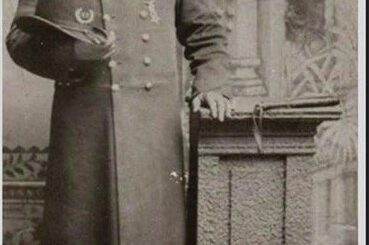
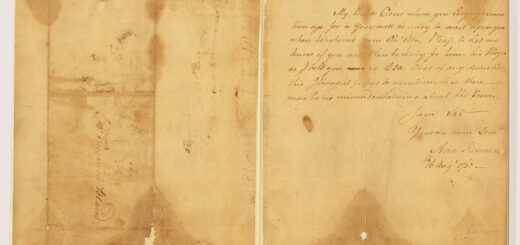
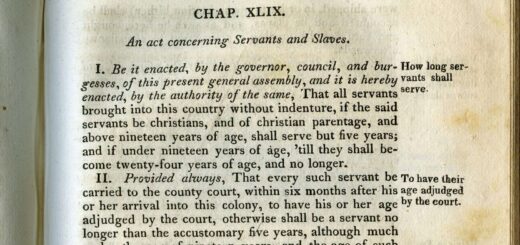
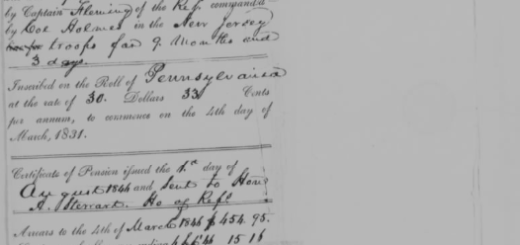
Great Article. I enjoyed this.
Interesting. Informative.
Welcome to my website Anne. Hopefully you’ll find any of my other articles interesting as well. If you didn’t do it already, on the homepage, if you enter your email address and click subscribe, you’ll get email notifications of when I post new articles. Keep in touch cousin.
Very interesting on how Washington distributed his lands that he had purchased in his will, enjoyed.
Debbie,
That and the number of people he divided land between, imagine the headache that caused for the executors and managers of his estate!!! Hope you enjoy my site.
Great article!
Glad you enjoyed it. I can’t remember Aric, is General Alex Spotswood the line you come down through?
Very informative. Honestly enjoyed it. I still think it’s wasted talent you should be a history professor. At the very least you should be on top of your current profession.
Thanks for that Noah. I’ve heard that so many times. But to be honest, I hate public speaking, when I do, I get nervous and begin to stutter a lot, lol. I’m better with the written word, I guess I get that from my kinsman, Thomas Jefferson. He was a man who did not like speaking or giving speeches, that’s why he was chosen to write the Declaration. One day we’ll have to go to the Virginia Museum of History and Culture down in Richmond when I’m doing research. You’d be amazed at some of the original documents they have in their collections. The last time I was in there doing research I was holding documents written by the Randolphs of Virginia and I held and looked over some documents written by Colonel Theodorick Bland, commanding officer of the 1st Continental Light Dragoons from the Revolution. It’s amazing when you get to see and hold documents of such great import. That’s what drives me in what I do, the things I’ve been able to see and do, walking in my ancestors footsteps, being able to bring them to life again. I mean at this point it is beyond a passion, more than a mission.
For all of you that don’t know Todd, everybody looks to him and turns to him he is the man. He would have been great at anything that he chose. I feel blessed to have him as a friend.
Excellent info! I can see your passion when I read your articles. Love, Aunt Wanda
Thanks auntie, glad you enjoyed it.
thank you Todd. I am from Charles Town WVa,. My grandmother direct descent from John Ambler, my cousin Walter Washington still lives at Samuel Washington’s home Harewood in Charles Town. I am currently helping Aric Bruggeworth become a Jamestowne Society Member. Small world. I just saw his comment.
Hi Sallie, yeah I know Aric, he’s a distant cousin of mine through a common ancestor we share. I’d like to look into the Jamestown Society myself as I am a descendant of two Jamestown settlers myself. Thanks for checking out my site.